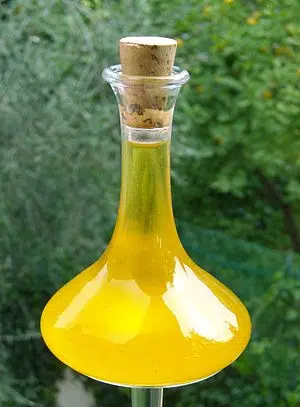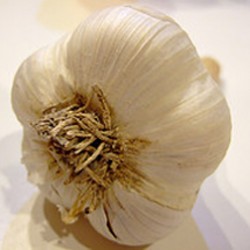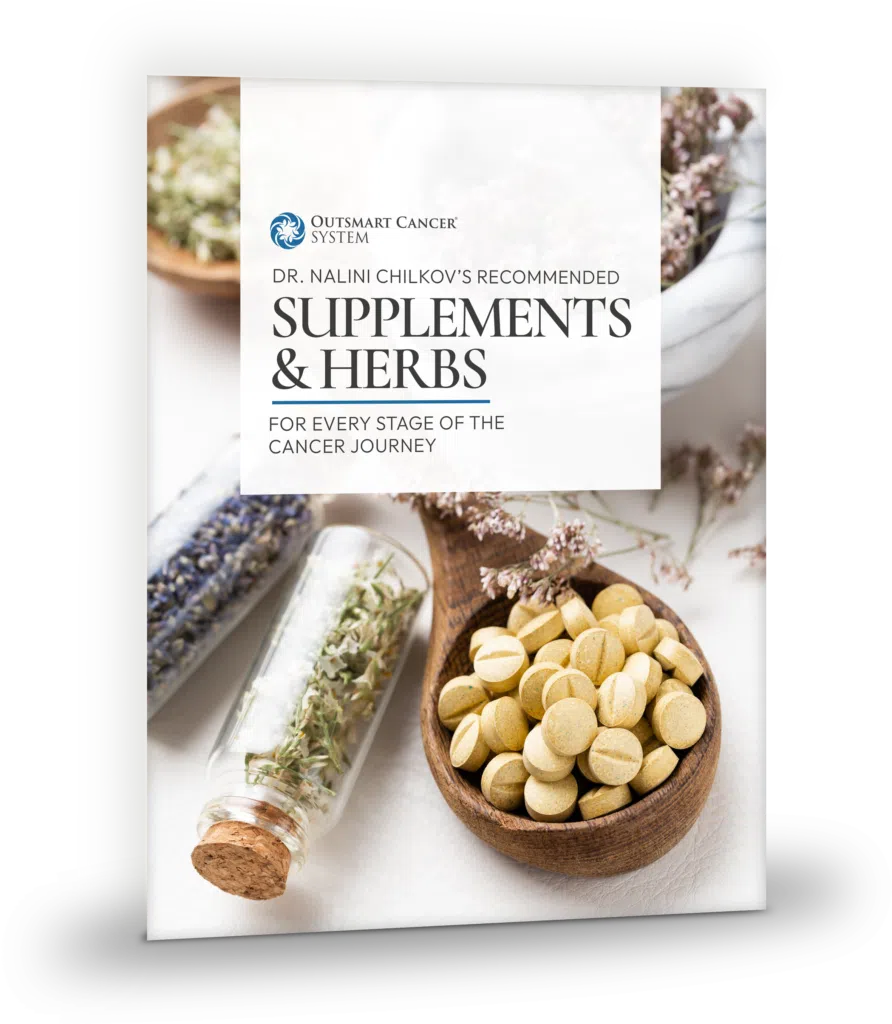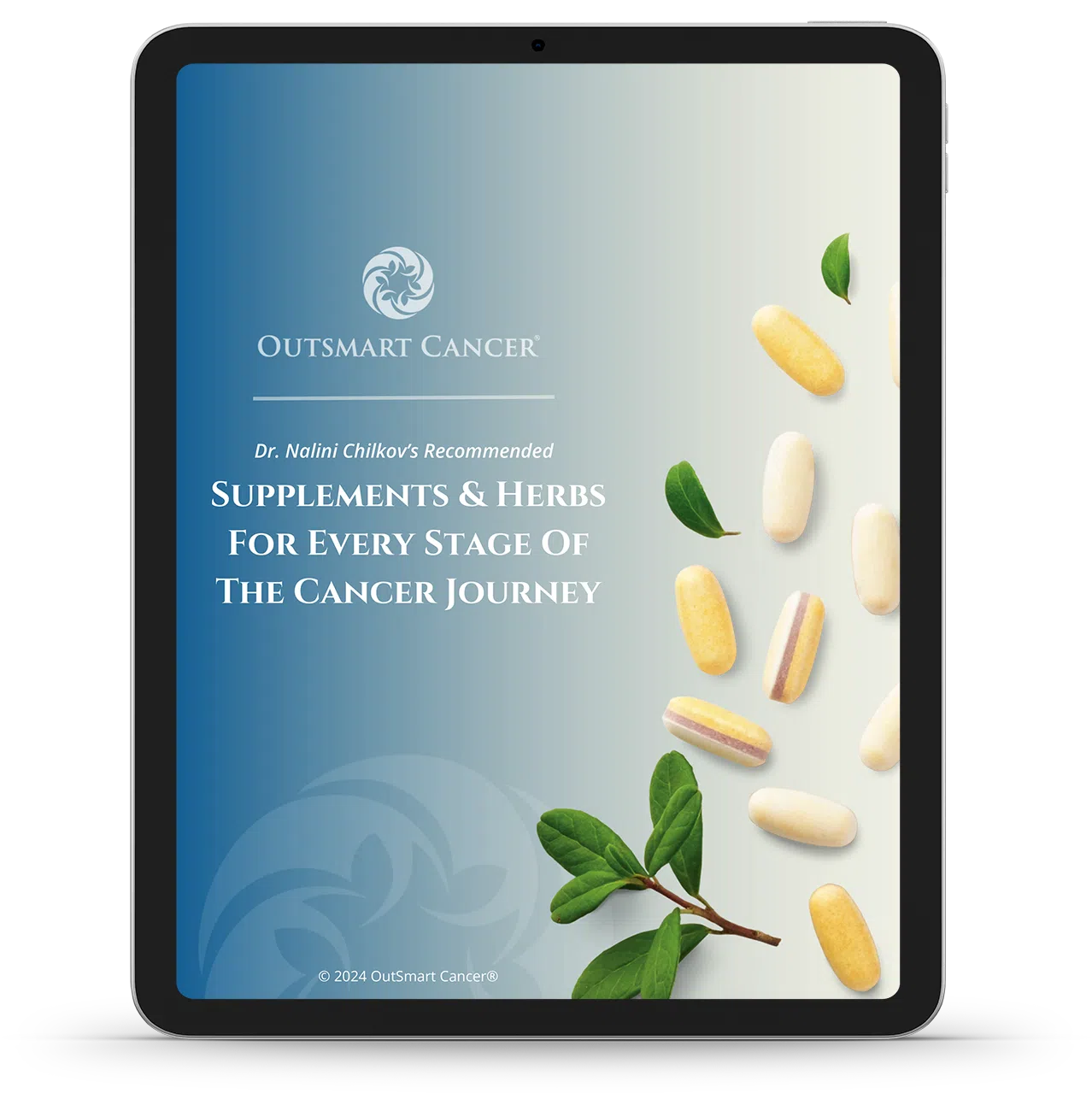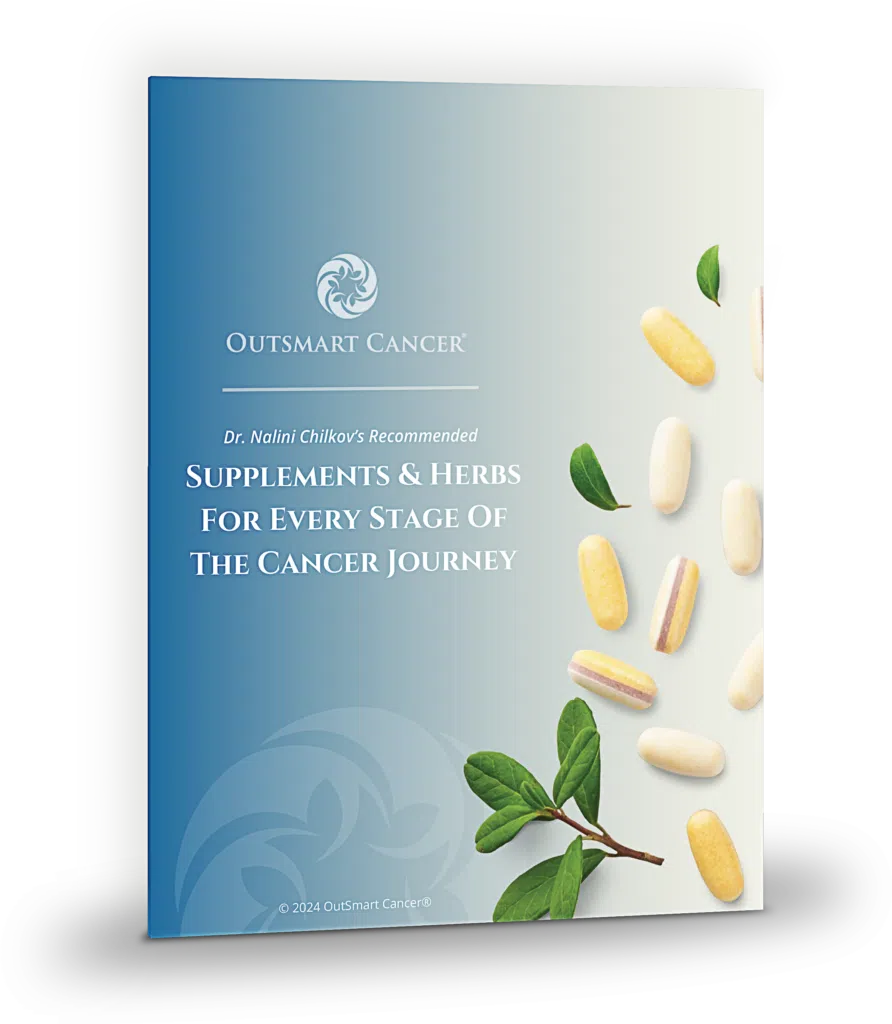March is Colon Cancer Awareness Month.
According to the Colon Cancer Alliance and the American Cancer Society, colon cancer, also known as colorectal cancer, is the third most commonly diagnosed cancer and the second leading cause of cancer death in men and women combined in the US.
Colon Cancer is considered a PREVENTABLE cancer.
Why? Primarily because by changing our diet we can reduce risk dramatically. And if we get regular screenings (colonscopy), we will be diagnosed only with precancerous or early stage cancer cells that are easily removed and treated.
Here are 8 proven steps you can take right now to promote a healthy anti-cancer intestinal environment and fight colorectal cancer (bowel cancer) naturally:
Colorectal cancer is a “food-related” cancer. Everything you eat passes over the lining of your digestive tract. The lining of the large intestine and the rectum at the lower end of the digestive tube contains waste, digestive fluids, bile acids and fiber.
That lining is bathed by chemicals in food, your own hormones and secretions, healthy and unhealthy bacteria. The contents of your intestines has a direct impact on the health of the tissue it touches as it passes through. Colorectal cancer is directly impacted by your diet.
1. Eat Less Red Meat. Studies show that eating red meat “frequently” increases the incidence of colon cancer. Eating red meat daily, and especially more than one serving per day, increases risk.
Plant based diets show the lowest risk (1). Increased risk is associated with increased inflammation associated with chemicals released by digestion of red meat. These chemicals increase damage to and inhibit the repair of DNA (genetic material) in the cells lining your intestines. (2) Damage to DNA is a primary cause of all cancers.
2. Eat More Garlic. According to the National Cancer Institute Fact Sheet on Garlic and Cancer Prevention:
Preliminary studies suggest that garlic consumption may reduce the risk of developing several types of cancer, especially cancers of the gastrointestinal tract. Protective effects from garlic may arise from its antibacterial properties or from its ability to block the formation of cancer-causing substances, halt the activation of cancer-causing substances, enhance repair, reduce cell proliferation, or induce cell death. Garlic is high in the minerals sulfur and selenium as well as plant chemicals such as allicilin and flavonoids, all known to be beneficial to health. The World Health Organization’s (WHO) guidelines for general health promotion for adults is a daily dose of 2 to 5 g of fresh garlic (approximately one clove) daily. (3) (4)
Other food plants in this family with similar properties include onions, leeks, scallions, and chives.
3. Eat A Rainbow of Plant Antioxidants. The deep, bright colors of fruits, vegetables, herbs and spices contribute a wide variety of antioxidants to the diet.
Examples of antioxidant rich, deeply pigmented foods are blueberries, cranberries, pomegranates, carrots, apricots, canteloupe, kale, broccoli, spinach, avocado, tomato, apples, red cabbage, red and purple grapes, pink grapefruit, tumeric, saffron, oregano, sage, and rosemary.
Color signals the presence of antioxidant plant chemicals that turn on cancer suppressor genes and turn off cancer promoter genes.
Studies show increased levels of inflammation and oxidative stress in the colon with diets lacking plant antioxidants. Increased inflammation and low antioxidant levels is an environment that promotes colon cancer (6) (7). Eat 6-10 servings daily.
4. Use Olive Oil. Olive oil contains plant chemicals that have anti-cancer properties. Olive oil reduces bile acid and increases enzymes that regulate cell turn over in the lining of the intestines promoting healthy tissue. Antioxidant compounds (phenolics) present in olive oil also exert a cancer protective antioxidant effect (8).
5. Include Selenium Rich Foods. Studies show that selenium not only inhibits colon cancer but can also enhance or work with some cancer drugs. Selenium also inhibits growth and promotes death of colon cancer cells (9).
Foods rich in selenium include garlic and onions, sunflower seeds, mushrooms, whole grains (brown rice, oats, wheat germ), brazil nuts, and fish (tuna, halibut, sardines, salmon).
In some areas the soil is very poor in selenium. Therefore taking a supplement of methyselenocysteine, a biologically active form of oral selenium, may provide a source absent in the diet.
6. Include Spices and Herbs That Inhibit Colon Cancer. Studies show that Garlic, Ginger, Tumeric, Thyme, Rosemary, Sage, Spearmint, and Peppermint all inhibit the growth of colon cancer cells (11).
7. Include Omega 3 Oils. A diet rich in anti-inflammatory Omega 3 oils (EPA and DHA) decreases incidence of colon cancer.
Omega 3 oils are found in cold water fish such as salmon, sardines, mackerel and cod as well as flax oil. Omega 3 oils decrease the levels of pro-inflammatory molecules that promote cancer. Because it is not always easy to get adequate levels of Omega 3 oils (EPA and DHA) in the modern diet, oral supplementation is a good alternative. (12)
8. Drink Ginseng Tea. Numerous studies have shown that several species of the prized longevity herb ginseng root decrease growth and proliferation of colon cancer cells, increase their demise (apoptosis), and act as a potent protective anti-cancer anti-oxidant.
Asian ginsengs (Panax ginseng, Panax notoginseng) as well as American ginseng (Panax quinquefolium) all exhibit these properties. Ginseng root is widely available in tea and extract form as a beverage tea. Under the guidance of a knowledgable clinician ginseng root has been traditionally used as an herbal medicine for a wide variety of applications (13) (14).
Summary
Reflecting upon these recommendations for dietary choices, we are describing both traditional Mediterranean and traditional Asian Diets.
These diets are naturally low in red meats and animal proteins, high in fish and omega 3 oils, high in olive oil and a wide variety of whole grains and fruits and vegetables as well as herbs and spices with known anti-cancer properties.
Cultures where traditional diets are still eaten today have lower rates of colon cancer than countries such as the United States and some European countries where a modern diet seems to promote and create higher risk for colon cancer (1) (2) (7) (8) (10) (11) (12). The choices seem clear, and pretty tasty.
